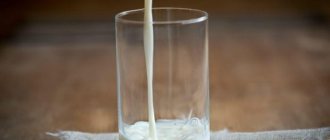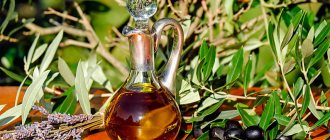We will tell you which fats should be completely excluded and which ones should definitely be included in the diet.
In fitness circles, when it comes to health, weight loss or muscle gain, people often misunderstand the role of fat in these processes. You can often hear the following questions: “What fats should I eat?”, “Do I need fat in my diet?”, “Will I gain weight if I eat fats?”
It's time to clear up some questions and learn what dietary fats are, which ones are healthy, which ones you should avoid, and finally, which fats are the best for weight loss.
What are fats?
The fats we eat are an integral part of the human diet. For normal functioning of the body, you need to consume a certain amount of fat daily. They perform many important functions in the body, including helping to produce powerful hormones such as testosterone. They also support cellular processes and are an important source of resting energy.3
Fats are very high in calories; one gram of fat contains about nine calories. This is slightly more than double the calories of protein and carbohydrates.3 While it is important to include some fat in your diet, you need to be careful not to overeat and end up with an unwanted calorie surplus that leads to weight gain. Many sources state that twenty to thirty percent of our daily calories should come from fat.5 Of course, these numbers can be higher if you eat a high-fat, low-carb diet, but it is not recommended for an extended period time to get less than twenty percent of calories from fats.
What are the benefits of fats?
A person gets fats from food. Together with proteins and carbohydrates, they perform many functions important for the physiological processes of the human body.
For example:
- participate in the formation of cell membranes;
- ensure the normal functioning of the digestive system;
- help synthesize sex hormones, enzymes, immune system cells;
- are the main source of energy for humans, enriching brain cells (fats provide 80% of the body’s energy reserve);
- maintain a constant internal body temperature.
Along with the benefits, some types of fats bring obvious harm. Animal fats are poorly absorbed by the body, settling in the form of accumulations of visceral fat on internal organs. The cholesterol released in this process causes significant harm to the human body.
Attention! It is a misconception that low-fat foods are good for weight loss. In them, fat is replaced with synthetic components or sugar. For example, in low-fat yogurt it is fructose syrup, which causes obesity, so you will not be able to burn fat for weight loss with this product.
Expert opinion . Dr. Alexander Myasnikov believes that “the fight against cholesterol has led to a decrease in daily fat consumption, as a result, the number of patients with diabetes and obesity has increased.” Therefore, he advises following the recommendations of nutritionists around the world: be sure to include healthy fats and exclude harmful fats from your diet.
What does “healthy fats” mean?
Many people have different understandings of what healthy fats are. There's actually no clear scientific definition of healthy fats. There are two main groups of fats—unsaturated and saturated (these groups are further divided into subcategories). Saturated and unsaturated fats differ in the number of carbon bonds in the molecule. Unsaturated fats contain double bonds between carbon atoms. Saturated fats have single bonds between carbon atoms, so they end up much closer together than in unsaturated fats.7
Healthy High Fat Foods
Most of the fats in your diet should be unsaturated. They, in turn, as mentioned above, are divided into two groups - monounsaturated and polyunsaturated fats.
Healthy sources of unsaturated fats:
- avocado;
- almonds, walnuts, pistachios and other nuts;
- nut butters (watch out for added sugars);
- olives;
- olive oil;
- flax seeds;
- salmon;
- soya beans;
- sunflower seeds;
- chia seeds.
Healthy sources of saturated fat:
Consume in limited quantities
- eggs;
- beef (from grass-fed cattle);
- whole milk;
- whole milk yogurt.
Healthy fats vs. bad fats
Generally, unsaturated fats are considered healthier. It is recommended that you meet about 90 percent of your daily fat needs from unsaturated fats. Saturated fats are associated with cholesterol, hence the recommendation to consume a maximum of 10 percent of these fats.8
Most recommendations are created to prevent cardiovascular disease and maintain heart health. Unsaturated fats contain high amounts of HDL (a lipoprotein that carries cholesterol away from the heart) and LDL (a lipoprotein that carries cholesterol into the heart).4
Unsaturated fats are often liquid at room temperature. They are classified into two different types: monounsaturated fats and polyunsaturated fats.
- Monounsaturated fats
They are usually found in plants. Sources include avocados, vegetable oils, nuts and seeds. These fats have been linked to improved heart health, reduced inflammation, weight loss, and increased insulin sensitivity.9
- Polyunsaturated fatty acids (PUFAs)
Plants and seafood products can be sources of PUFAs. Due to their high content of omega-3 fatty acids, polyunsaturated acids are often mentioned in the press. As a rule, fats from seafood are better absorbed by the body than the same fats of plant origin. The effects of these fats on the body have been linked to cardiovascular health, brain development in children, reduced inflammation, and immune system health, to name a few.9
- Saturated fats
They are often mistaken for unhealthy fats. Saturated fats are typically linked to heart disease because they are high in cholesterol. However, this idea has been refuted by scientific research - they are not considered harmful to the heart, especially in the absence of a calorie surplus (when you consume more calories than you burn).4
Saturated fats can solidify at room temperature and are more common in animal products. Due to their high cholesterol content, they play an important role in the production of steroid sex hormones and in brain function. Therefore, some of them must be included in the diet. If you are unsure how much to take, stick to the national health guidelines: no more than 10% saturated fat per day.4
- Trans fats
They may be called differently. If you come across the word hydrogenated or partially hydrogenated, then we are talking about trans fats. These are artificially created, unsaturated fats that undergo a processing process that causes them to become solid at room temperature. They should not be included in a healthy diet in any quantity. Studies have linked the presence of even small amounts of trans fat in the daily diet to a sharp increase in the risk of cardiovascular disease.1
The health benefits of trans fats are zero. Legislation in many countries requires that trans fats be listed separately on consumer packaging. They are often added to packaged baked goods or cookies because these fats extend the shelf life of foods.1
Summary:
Unsaturated fats have been proven to be healthy and are considered the healthiest fats. Saturated fats have some important health benefits, but their intake should be limited. Trans fats should not be present in the diet and should be avoided at all costs; even small amounts can cause significant harm to health.1
A little about fats
All fats are divided into saturated and unsaturated. The difference is in the structure of the molecule of such fats and, as a result, in properties and functions. Unsaturated fats, in turn, are divided into monounsaturated (omega-9) and polyunsaturated (omega-3, 6). This article is done with complicated terms.
Many people try to avoid saturated fats due to cholesterol concerns. Modern science has no evidence of a connection between heart disease and cholesterol contained in animal fats [1]. Moreover, the cholesterol we get from food affects the total cholesterol level in the body by only 10%. But the biggest influence is exerted by hormonal levels, excess weight, lifestyle and heredity, lack of vitamin D, lack of variety in the diet, and deficiency of omega-3 fatty acids.
You need to understand for yourself that each type of fat is beneficial for our body in its own way . Moreover, omega 3 and 6 are essential fats, meaning we need to get them from food daily. Here are just some of the properties of saturated and unsaturated fatty acids:
- Reduces “bad” cholesterol, reducing the risk of cardiovascular diseases;
- Develop and maintain body cells;
- They are important in the functioning of the nervous, hormonal, immune, and reproductive systems;
- Stimulate growth and maintain healthy hair, skin, nails, bones.
There is no scientifically proven link between eating saturated fat and an increased risk of heart disease [2].
Forget about the dangers of fatty foods. But remember its high calorie content - 1 g of fat is 9 kcal. If you don't watch your calories, you will gain weight. Unsaturated fats are usually liquid, vegetable fats. Saturated fats are typically animal fats that are solid.
Any fat, both vegetable and animal, contains both saturated and unsaturated fats. The only difference is in proportions.
As you can see, even olive oil contains saturated fats, which many mistakenly consider harmful. In products of animal origin their proportion is higher, such as in lard and butter.
Are there fats that help you lose weight?
This is a double-edged sword. Fats contain 9 calories per gram, more than twice the calories of proteins and carbohydrates.3 Fats are high in calories, so some people can easily gain extra calories. If you want to lose weight, you need to be in a calorie deficit (that is, consume fewer calories than your body burns). Eating too much fat can put you in a calorie surplus.
There is no fat that will help you lose weight. But there are still some fats that can help the body break down stored fat and use it as fuel. Against the backdrop of a calorie deficit, consuming such fats can make the weight loss process a little more effective.
- Omega-3 Fish Oil
There is some research suggesting that a diet high in omega-3s may have some effect on weight loss in overweight people. However, the researchers stipulate that to obtain this effect, omega-3 intake must be combined with diet and exercise. The results of the studies were modest at best, but there was some slight weight loss among the subjects. In addition, omega-3 acids are very healthy and have a number of additional benefits, so including them in your diet can be a good idea.10
- MCTs or medium chain triglycerides
MCT is a medium-chain triacylglycerol that is digested differently than other fats. Medium chain triglyceride oil is broken down and metabolized in the liver and is not stored as easily as other fats. MCT, used along with a calorie deficit and exercise, can be a good strategy for weight loss. Just like with omega-3, the results are quite modest, but this oil can also help you lose some weight.6
More fat in the diet: how to organize it?
Does the thought of consuming more fat make you break out in a cold sweat?
Do not be afraid! We are talking about natural fats and natural products with a high fat content in order to replace refined carbohydrates and sugars in the diet. “Real” fats not only have protective properties, but are also digested more slowly, creating a longer feeling of fullness. You don’t need to develop any special program or complicate your life - just add a small amount of fat-rich foods to your diet every day and reduce your consumption of flour and sweets, because a high content of fat and carbohydrates will invariably lead to weight gain. Make this a rule - and the results will not keep you waiting.
Due to the complexities of terminology and classification of fats (saturated, poly-, mono-, omega), I am guided by one simple rule: all natural (natural) are healthy, and all processed (industrial) are harmful. And remember that even healthy fats combined with excessive carbohydrate intake will not benefit you. In other words, choose unsweetened coconut (or full-fat whole milk) yogurt over ice cream.
Experimental studies show the success of a high-fat, low-carbohydrate diet—the keto diet—in the fight against obesity, diabetes, and heart disease. But you don’t need to cover every dish with oils or bacon! How can you tell if you're getting enough fat? Your body will tell you this: pay attention to your energy level, feeling of fullness, as well as the condition of your skin, hair and nails.









